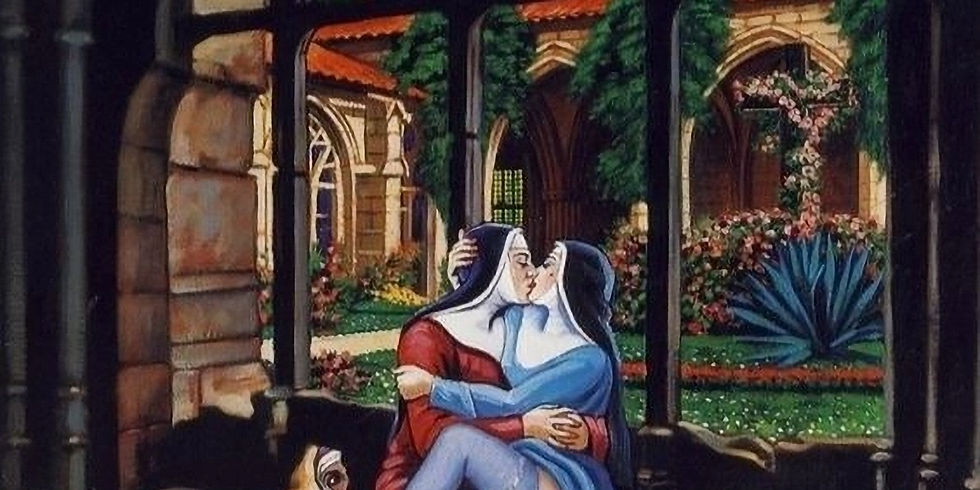Your garden is making you miserable
- Malou

- 18 oct. 2024
- 3 min de lecture

Adam and Eve would probably have a thing or two to add to this article. Eve especially must have grown a bit of resentment towards gardens. And who can blame her, you know, with the first sin, and the Fall, and all that ensued?
The gardens that we know today are not exactly Edenic per se, but it would be lying to say that during the pandemic, owning a garden was not heavenly. Even on a daily basis, they act as safe havens, allowing a small part of the outside world inside of our homes. However, no matter how great they are and how many Sunday brunches are organized thanks to them, gardens symbolically represent what is wrong within man’s recent evolution.
In the ever-growing rise of a deeply individualistic and liberal society, gardens are one more tool that make social links wither. Indeed, why go out when you can do everything from home? There is no need to go to public places when every activity can be done in private.

Going to a café with your laptop? No, you can work from home and enjoy the sun on your patio. Strolling in the forest? You can be in contact with nature by gardening and tending to your own plants alone. Taking your kids to the park, whatever for? They have a slide and a swing only for themselves at home.
Backyards, with their barbecues and their pools, are a small replica of the world, made only for one family, with everything at disposition so no one has to go out and be social. Today’s gardens are the epitome of individualism and symbolize the loss of the public sphere.
We can even go as far as saying that they replace the third places, those key places for human connections that are neither your home nor your workplace. They are free locations that encourage public relaxation, where you can encounter regular frequenters of a space and converse with them – think churches, libraries, bars, gyms, parks…
In our age, the online world robs us of these spaces, because for many of us, the third place where we spend most of our time is a screen. And when we come up for some fresh air after hours of scrolling, it is much easier to just go sit in our gardens to recharge our batteries than to go outside and reconnect with people. Gardens are an extension of the house that cuts us off from the rest of humanity.

This might seem a bit extreme, and honestly, it is. After all, gardens are an enjoyable space and liking them doesn’t make you evil. But criticizing them is part of a long history, and if it was already a thing in the 17th century, then there must be some truth to it.
Andrew Marvell had already started this movement when he published his poem The Mower against Gardens, in which he contrasts urban sophistication and rural simplicity. The first lines are already very telling:
Luxurious man, to bring his vice in use,
Did after him the world seduce,
And from the fields the flowers and plants allure,
Where nature was most plain and pure.
He first enclosed within the gardens square
A dead and standing pool of air [...]
His dispraise of gardens does not repose on the individualistic aspect of it, but on humankind’s corrupt appetites that enjoin men to entrap nature between fences and make it their own. In a sense, gardens are the symbol of humans being all-powerful and subjecting Nature to their will – and isn’t that despicable?
Your backyard is no Garden of evil. But sometimes it is nice to sit and reflect on what our surroundings and our way of living tell us about the society in which we evolve.
I hope you liked this short article and didn’t take it too seriously, I’ll see you soon!
Malou



